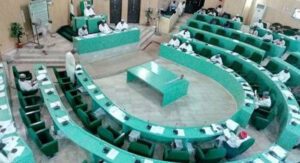Zamfara: Group laments higher institution tuition fee hike
A group, Zamfara State Concerned Citizens, has cried out over the recent tuition fees hike in institutions of higher learning, demanding Governor Dauda Lawal’s intervention.
It noted that with the tuition fees hike, many people would be discouraged from educating their children.
In its letter to the Governor, which was made available to newsmen on Thursday, the group said:
“We bring to your attention, a pressing issue that demands your immediate intervention: the unjust and alarming increase in tuition fees at the Federal University Gusau, FUG.
“The Federal University Gusau, being a centre of academic excellence, has played a pivotal role in shaping the future of countless young individuals from our state. However, the recent exorbitant tuition fee hike has sent shockwaves through the student community and their families, jeopardizing the dreams and aspirations of many promising students who come from economically disadvantaged backgrounds.
“Education is not only a fundamental right but also the bedrock of progress and development for any society. The sudden and substantial increase in tuition fees has placed an unfair burden on students and their families, forcing many to reconsider pursuing higher education altogether.
“This unfortunate scenario undermines the core principles of equality and inclusiveness that Nigeria as a nation stands for.”
The group also urged the Federal Government to address the issue, saying it has become a source of worry for parents and students.




